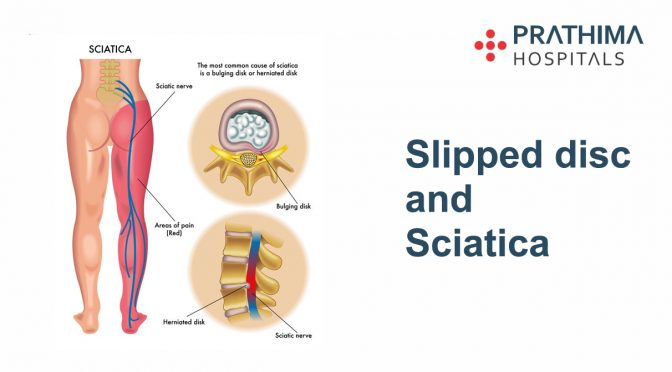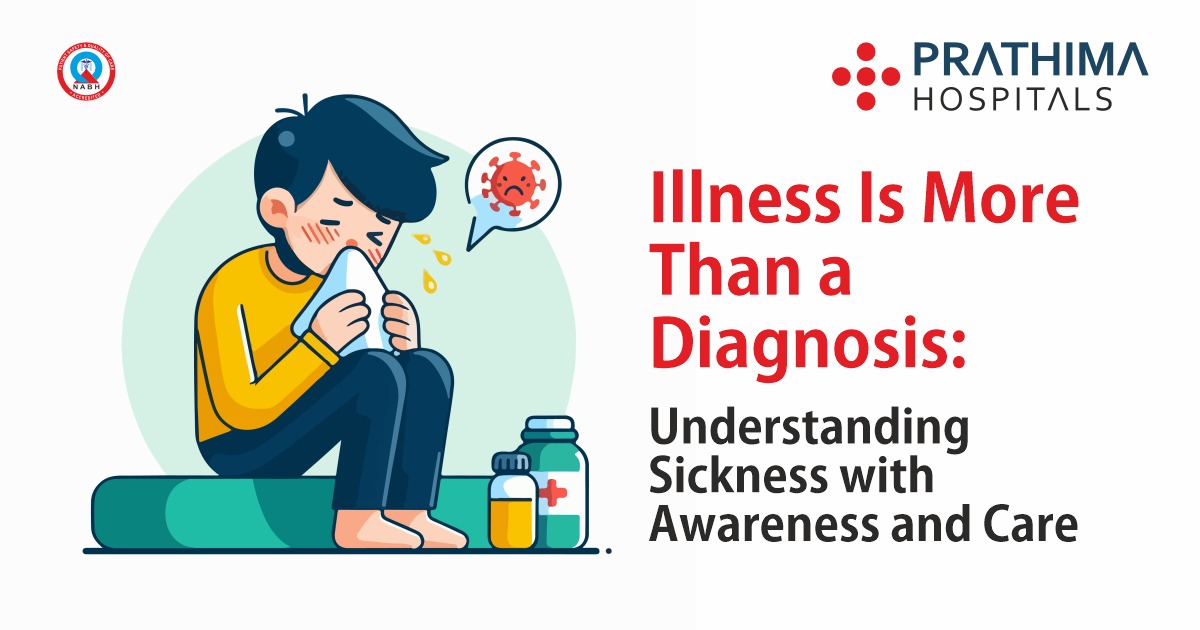Slipped disc and Sciatica

What is sciatica?
Low back pain and sciatica are one of the most common complaints seen in a spine clinic. Sciatica is a term used to describe the pain arising in the lower back and radiating along the lower limbs. The most common cause for this kind of pain is a herniated disc in the lower part of the spine, also called the lumbar spine. To understand sciatica, we need to know some features of the human spine.
The Human Spine
The spine supports the weight of our body and also acts as a conduit or a tube that allows the passage of nerves from the brain to various parts of the body. Spine is made up of 33 bones placed one above the other. These bones are separated by soft cushion like material called intervertebral disc.
The Intervertebral disc
These discs acts like shock absorbers. The discs contain an outer layer called annulus and the inner part called the nucleus. The Rupture of the outer layer of the disc leads to escaping of the the nucleus out of its confines. This is called herniated disc or slipped disc.
How does disc herniation affect us?
Lumbar disc herniation can lead to
- Sciatica
- Tingling sensations or numbness along the lower limb
- Weakness of the lower limbs
- Loss of bladder control or bowel control
What should we do if we have these symptoms?
You should immediately consult a neurosurgeon/spine surgeon. After clinical examination, the doctor will ask you to undergo MRI of the lumbar spine. The MRI helps the clinician to establish the cause and severity of the herniation.
What are the treatment options?
If the pain is tolerable, the patient can be treated with bed rest, pain killers and appropriate spine care.
If the symptoms are severe, then surgery may be the right choice. During surgery, the disc that has herniated will be removed and the pressure over the nerves is relieved. This procedure is called discectomy.
Is it safe to undergo surgery?
The discectomy is a commonly practised procedure. It is a safe procedure with minimal rate of complications.
How long does a patient need to stay in hospital, after surgery?
The patients are usually kept in the ward for 2-3 days and then discharged home. “Neurologist in Hyderabad”






Warning: Undefined variable $req in /home/u885608126/domains/prathimahospitals.com/public_html/wp-content/themes/prathimahospitals/functions.php on line 294
Warning: Undefined variable $commenter in /home/u885608126/domains/prathimahospitals.com/public_html/wp-content/themes/prathimahospitals/functions.php on line 295
Warning: Trying to access array offset on value of type null in /home/u885608126/domains/prathimahospitals.com/public_html/wp-content/themes/prathimahospitals/functions.php on line 295
Warning: Undefined variable $aria_req in /home/u885608126/domains/prathimahospitals.com/public_html/wp-content/themes/prathimahospitals/functions.php on line 295
Warning: Undefined variable $req in /home/u885608126/domains/prathimahospitals.com/public_html/wp-content/themes/prathimahospitals/functions.php on line 298
Warning: Undefined variable $commenter in /home/u885608126/domains/prathimahospitals.com/public_html/wp-content/themes/prathimahospitals/functions.php on line 299
Warning: Trying to access array offset on value of type null in /home/u885608126/domains/prathimahospitals.com/public_html/wp-content/themes/prathimahospitals/functions.php on line 299
Warning: Undefined variable $aria_req in /home/u885608126/domains/prathimahospitals.com/public_html/wp-content/themes/prathimahospitals/functions.php on line 300
Warning: Undefined variable $commenter in /home/u885608126/domains/prathimahospitals.com/public_html/wp-content/themes/prathimahospitals/functions.php on line 303
Warning: Trying to access array offset on value of type null in /home/u885608126/domains/prathimahospitals.com/public_html/wp-content/themes/prathimahospitals/functions.php on line 303